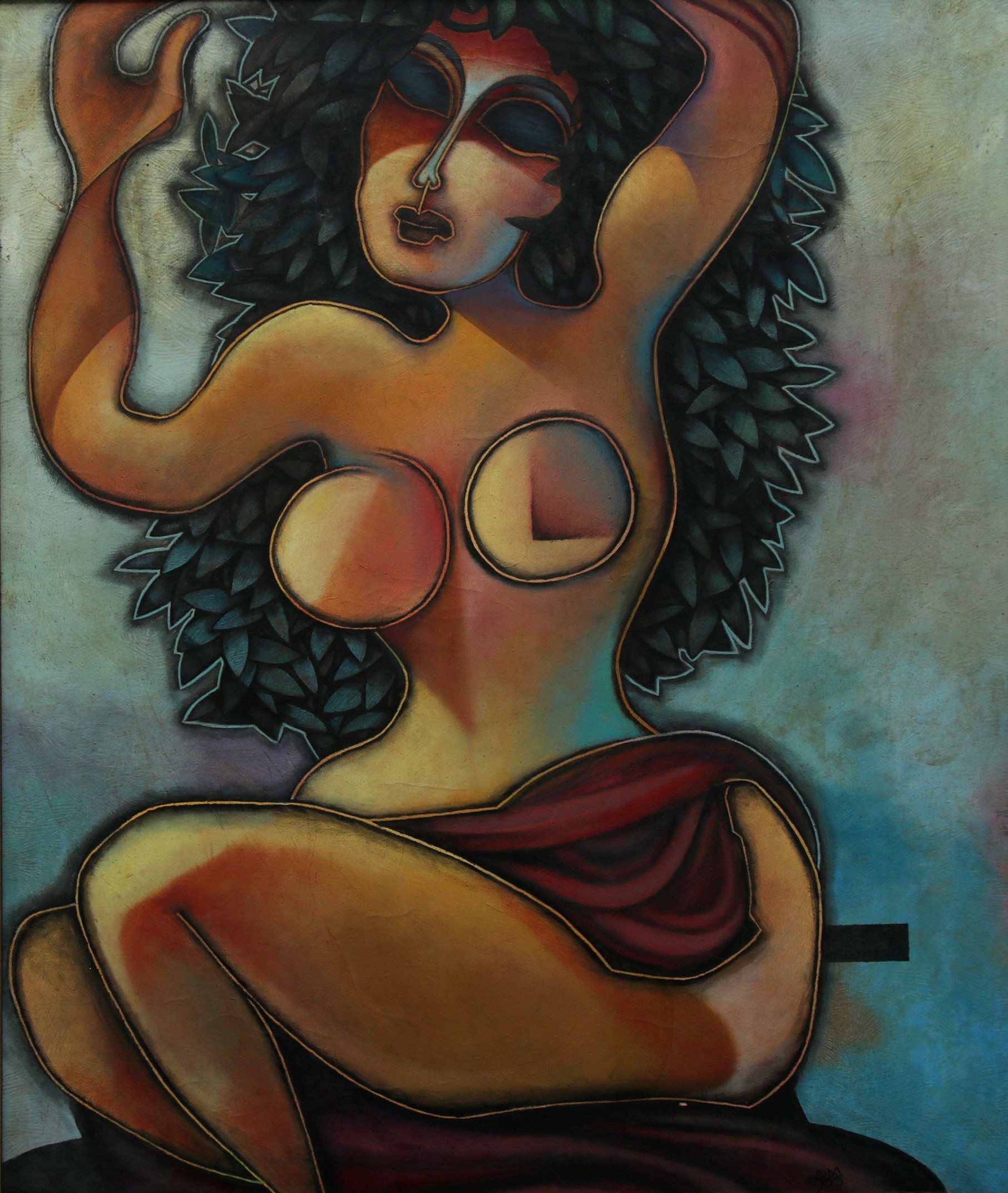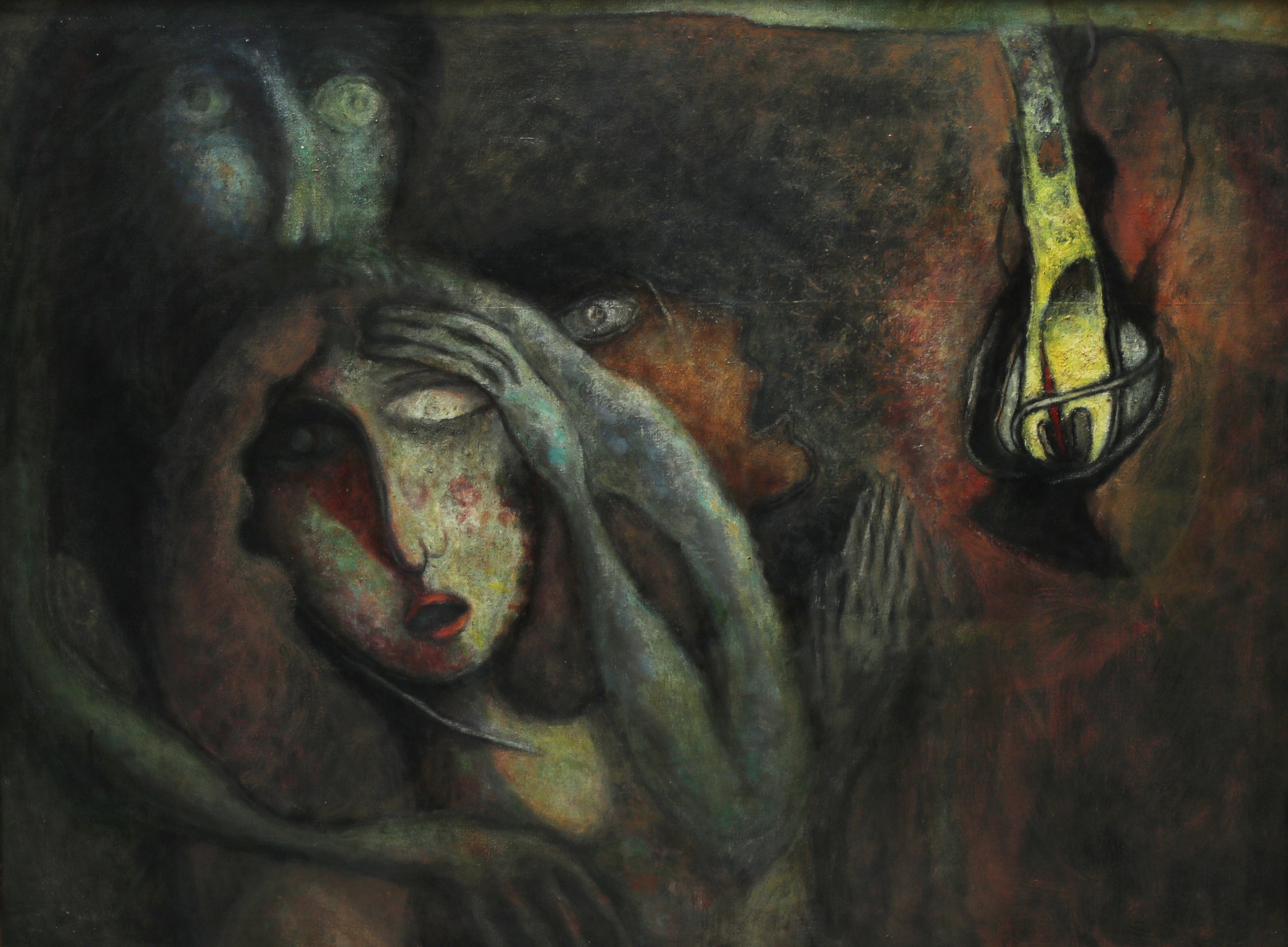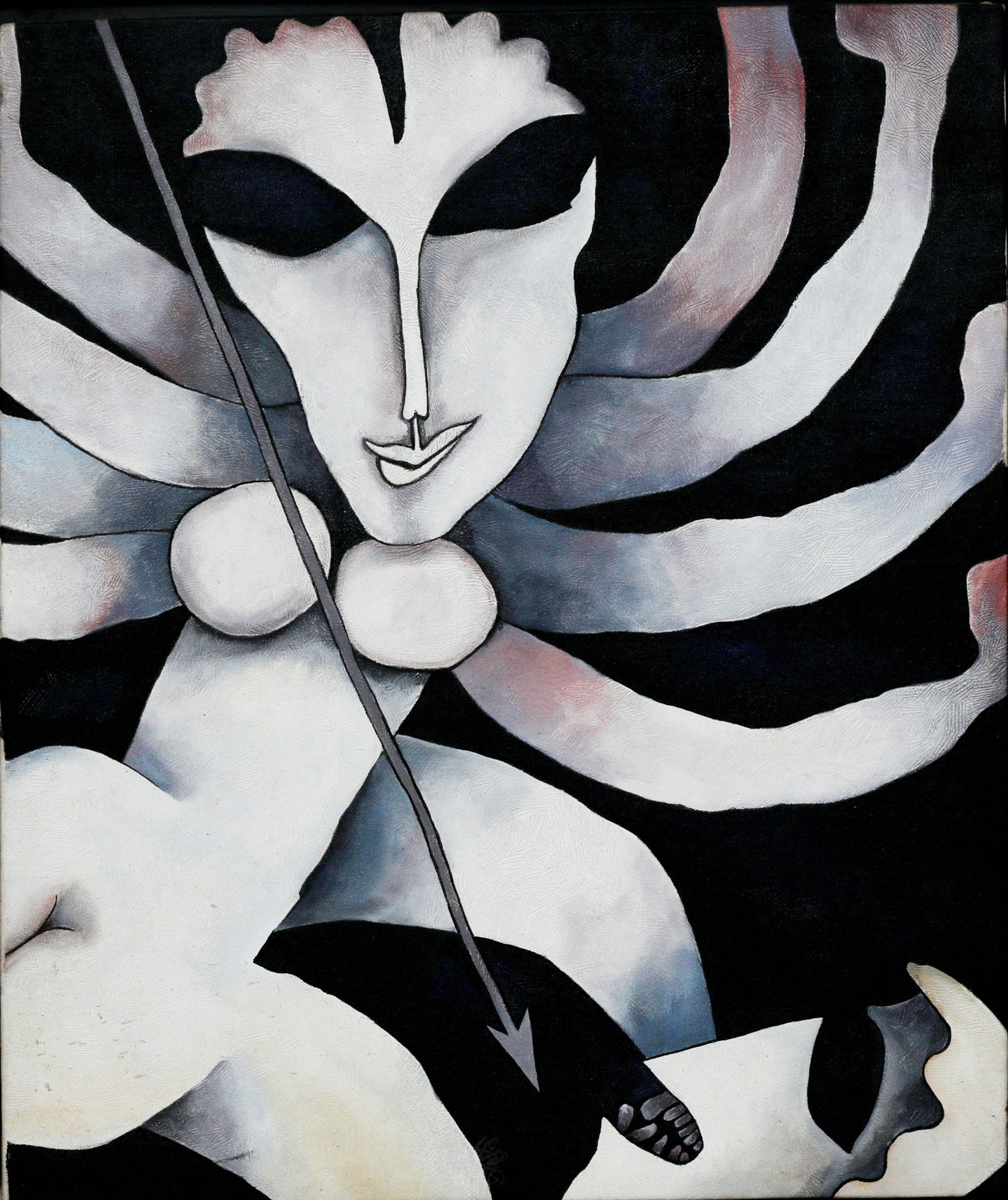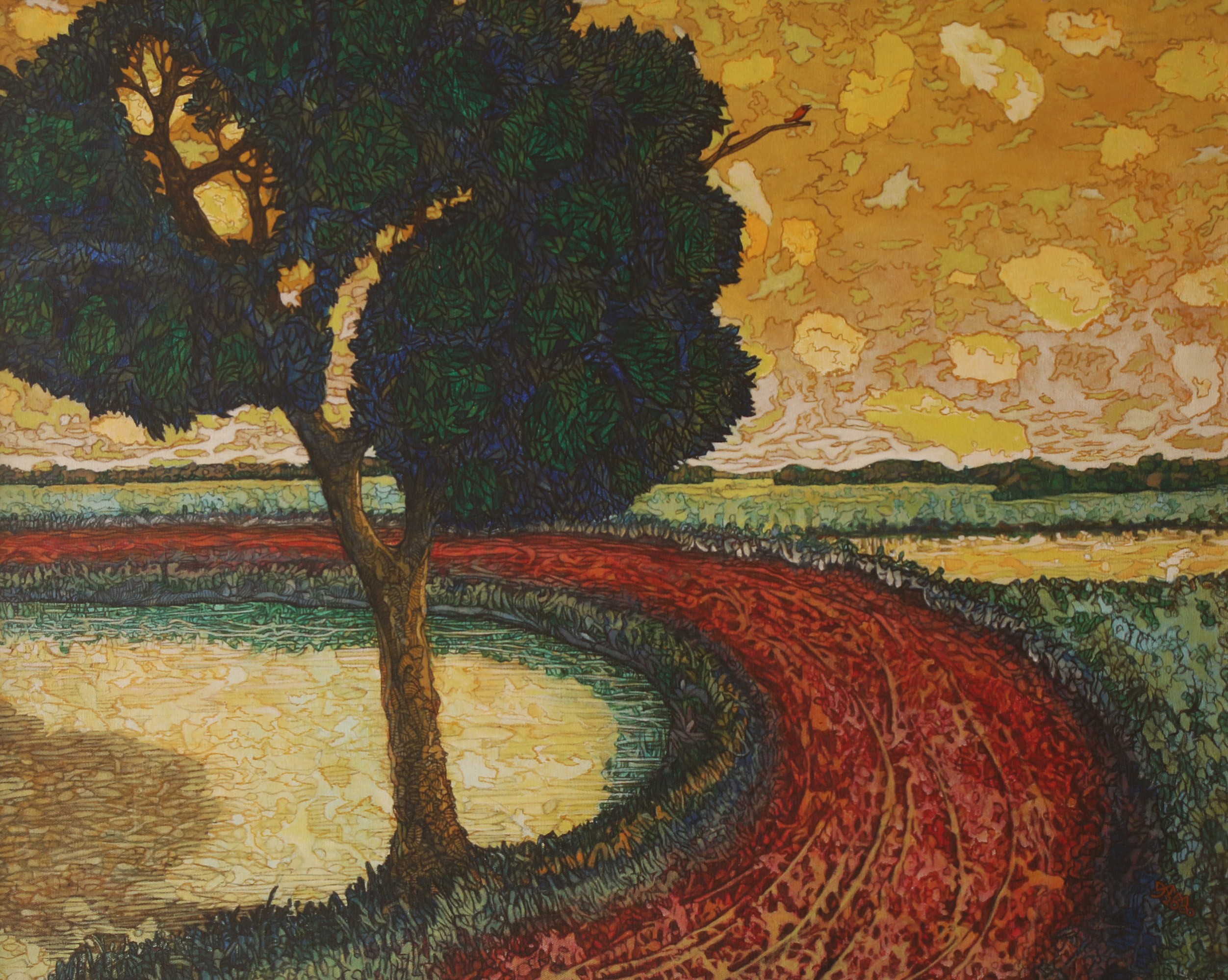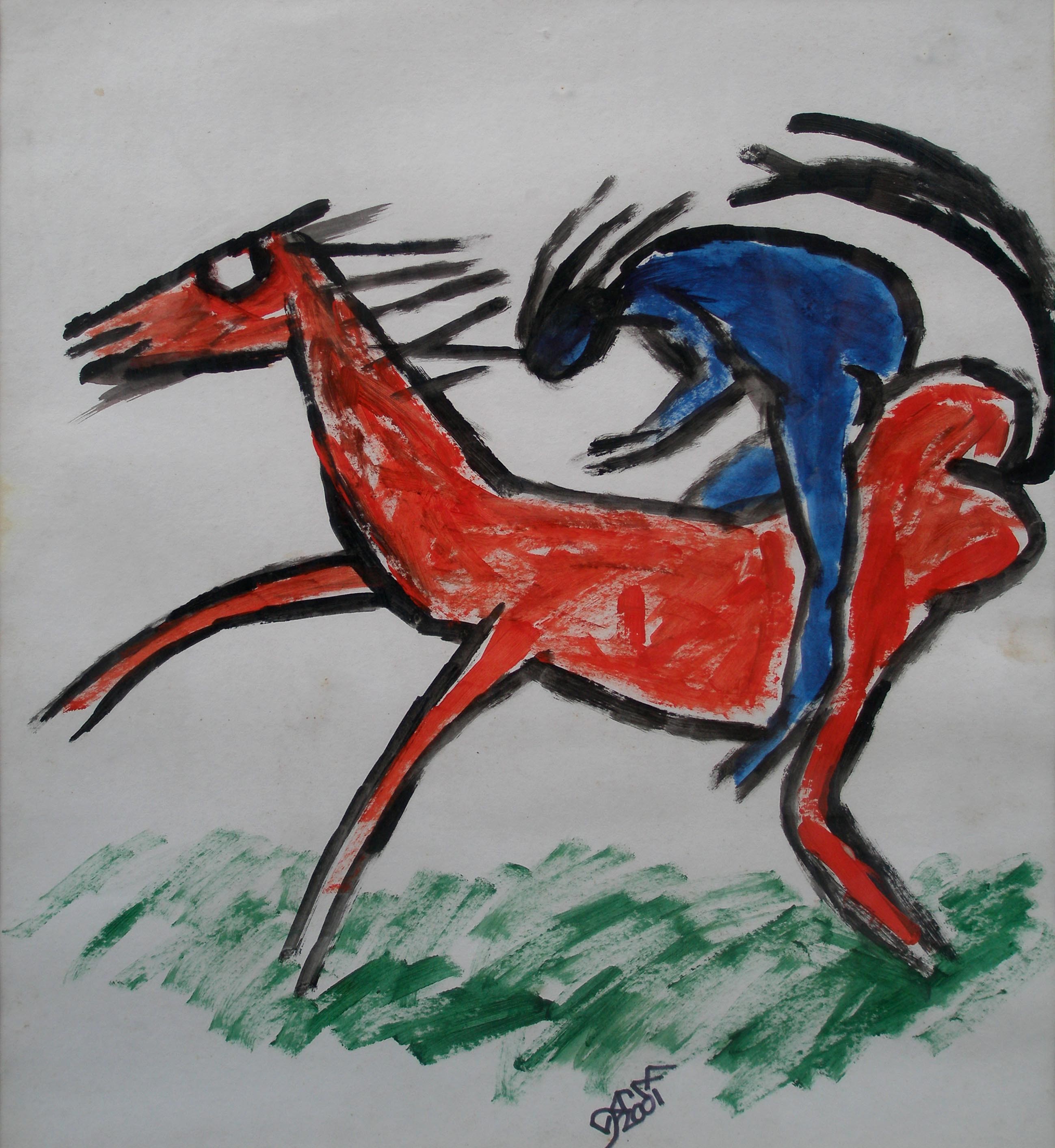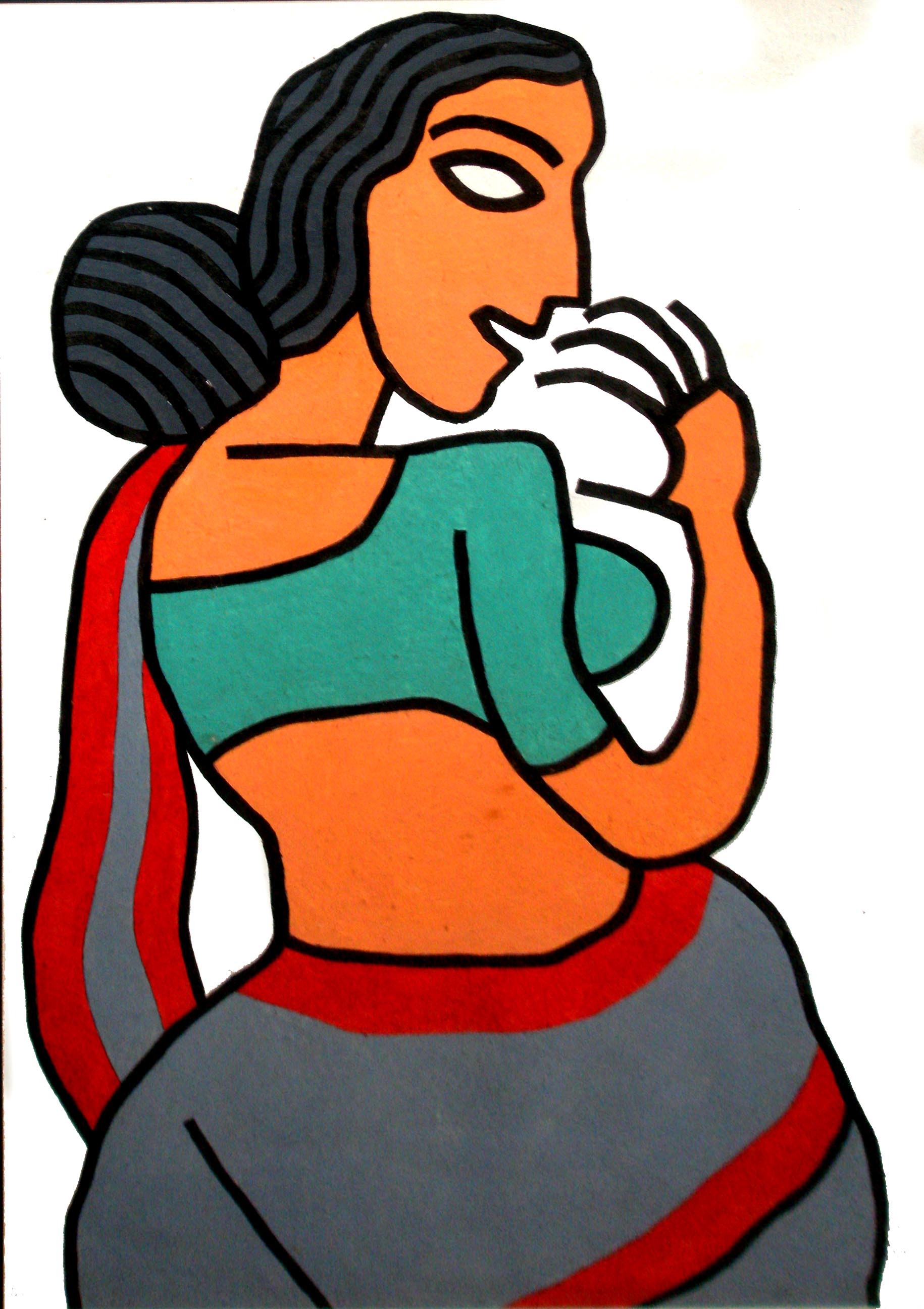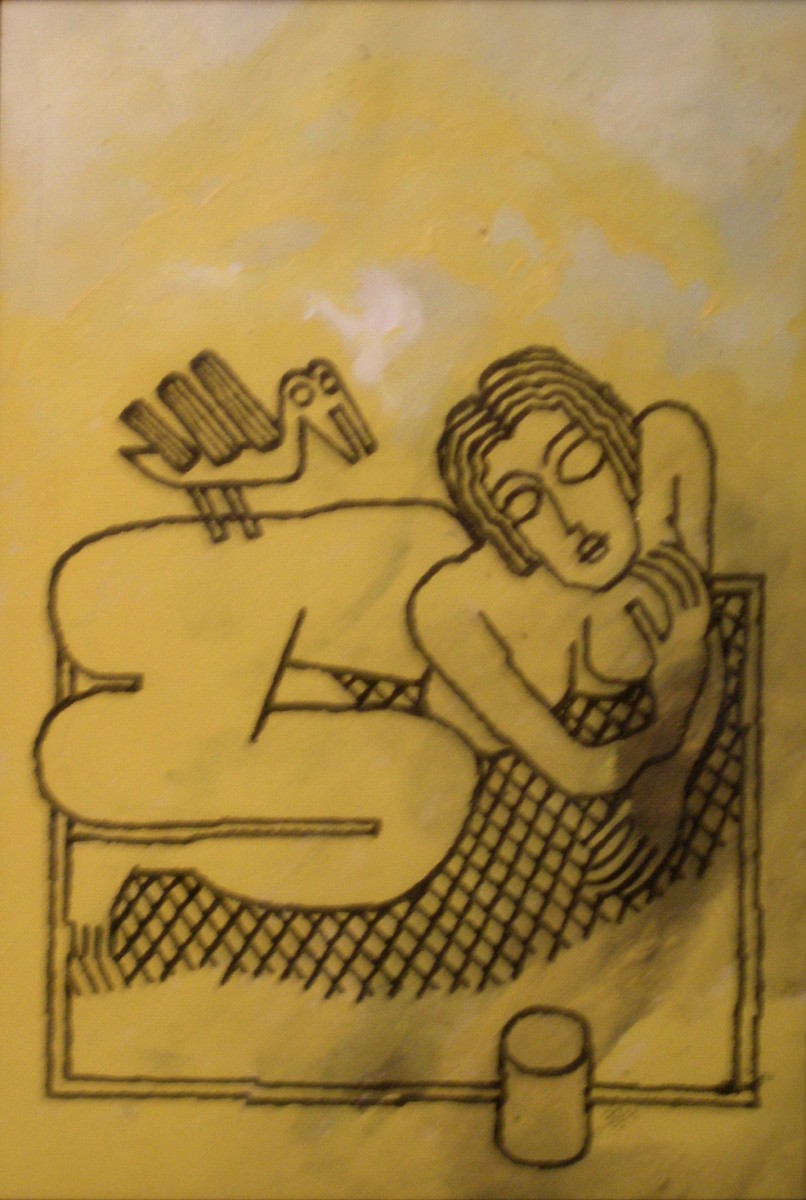

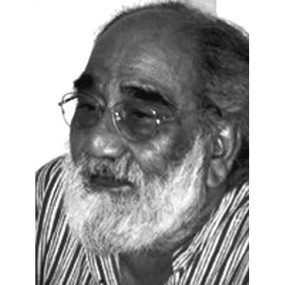
(1933 – 24 February, 2014)
Prokash Karmakar was born in Kolkata, 1933 and was an eminent Indian modern and contemporary artist. Karmakar is best known for his landscapes and nudes, which are generally painted in vibrant colors with bold lines and intricate textures. He came from artistic family; his father, Prahlad Karmakar was renowned print maker artist at that time, but his all the paintings were destroyed due to some social-political riots. Karmakar learnt a lots of paintings and techniques from his father, and also learned how to use transparent and opaque watercolors from Kamalaranjan Thakur, who was a student of his father, and from Dilip Das Gupta. However, senior artist Nirode Majumdar, who had studied under Abanindranath Tagore, introduced Karmakar to artistic ideas, techniques, line harmony, and breaking form. Karmakar visited France on a fellowship to study art museums. This inspiring experience led the expressionist artist, who was primarily a colorist, to begin creating figurative monochrome paintings in the 1970s.
Karmakar joined Govt. College of Arts & Crafts, Kolkata but soon he dropped out his studies due to financial difficulties. During this time, he designed book covers and worked as an illustrator to make a living. He also joined the army but left after two years to pursue his passion for painting.
Karmakar’s paintings reflect how he sees and interprets nature, life in both rural and urban settings, and forms ranging from soft to sharp, all without any religious references. He was highly original blend of Indian sensibilities & western technique. He explored a variety of mediums, including watercolors, acrylics, pen and ink, oils, and mixed media throughout his career. His artworks encompass a wide range of subjects, from nude and partially nude figures to landscapes, animals, and fish. He used a diverse artistic palette, shifting from vibrant and lively colors to more subtle and subdued tones. At times, he also delved into monochrome artworks characterized by bold, expressive lines. Karmakar's style was figurative yet not strictly realistic, often capturing elements of Bengali culture and mythological themes in his expressive works. His landscapes are unparalleled. They capture the true essence of India while also being very modern. His figures, lines, and bold distortions are simply magnificent.
Karmakar’s works in the permanent collection in galleries and museums throughout India, including National Gallery of Modern Art, New Delhi. He achieved numerous awards in his career journey.
Prokash Karmakar passed away on 24 February 2014.
